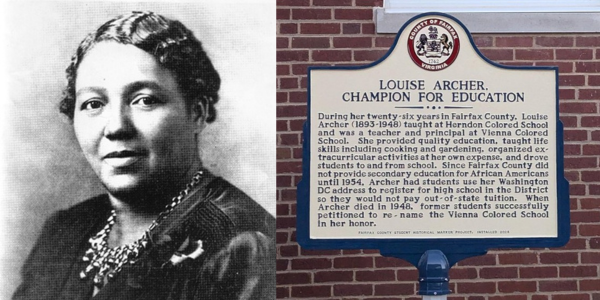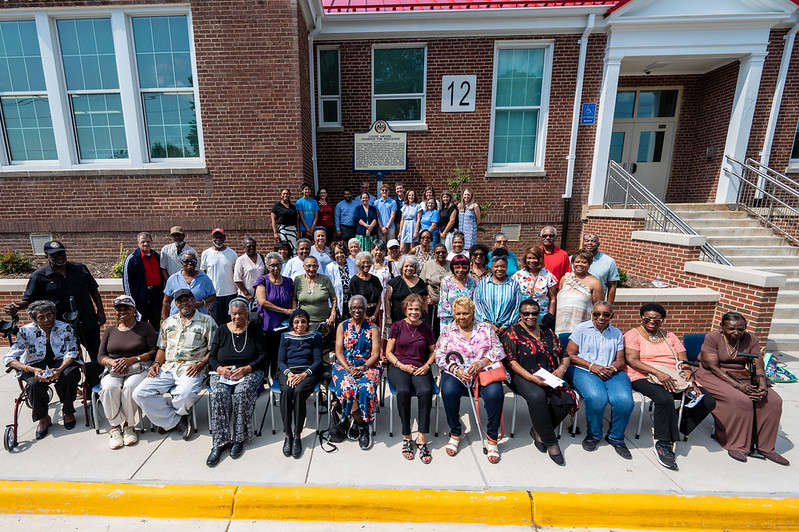
A new historical marker was unveiled on Saturday, Sept. 6, at Louise Archer Elementary School in Vienna. The marker celebrates Archer's decades of service as a teacher and principal and her lasting commitment to education in Fairfax County. Students, educators, community members and former students of Archer attended the dedication, which marks the final installation in the county’s Black/African American Historical Marker Project.

Who Was Louise Archer?
The new marker commemorates Archer’s extraordinary career in Fairfax County, where she served as principal of the Vienna Colored School. During her 26-year career, she not only provided high quality education but also taught life skills, organized extracurricular activities at her own expense, and personally transported students to and from school. Fairfax County did not provide secondary education for African American students until 1954, so Archer guided students to register for high school in Washington, D.C., helping them continue their education without paying out-of-state tuition.
Archer’s influence extended beyond academics. She taught sewing, embroidery, cooking, industrial arts, poetry and music, and she initiated graduation ceremonies at the Vienna Colored School. She also cared deeply for her students’ well-being, providing hot meals in the absence of a cafeteria and offering transportation to children living far from school. Former students recall trips to her home and the city, experiences many had never had before.
Background
The Black/African American Historical Marker Project was created in 2021 to recognize historically significant people, places, and events that have shaped the Black experience in Fairfax County. The initiative is a collaboration among the Fairfax County Board of Supervisors, Fairfax County Public Schools, the History Commission, the Department of Planning and Development, and Neighborhood and Community Services, supporting the county’s One Fairfax policy to advance equity across all areas of public policy and community life.
For more information about the project and to read about previous markers, visit the Black/African American Historical Marker Project website.



 SIGN UP FOR DAILY EMAIL HEADLINES
SIGN UP FOR DAILY EMAIL HEADLINES